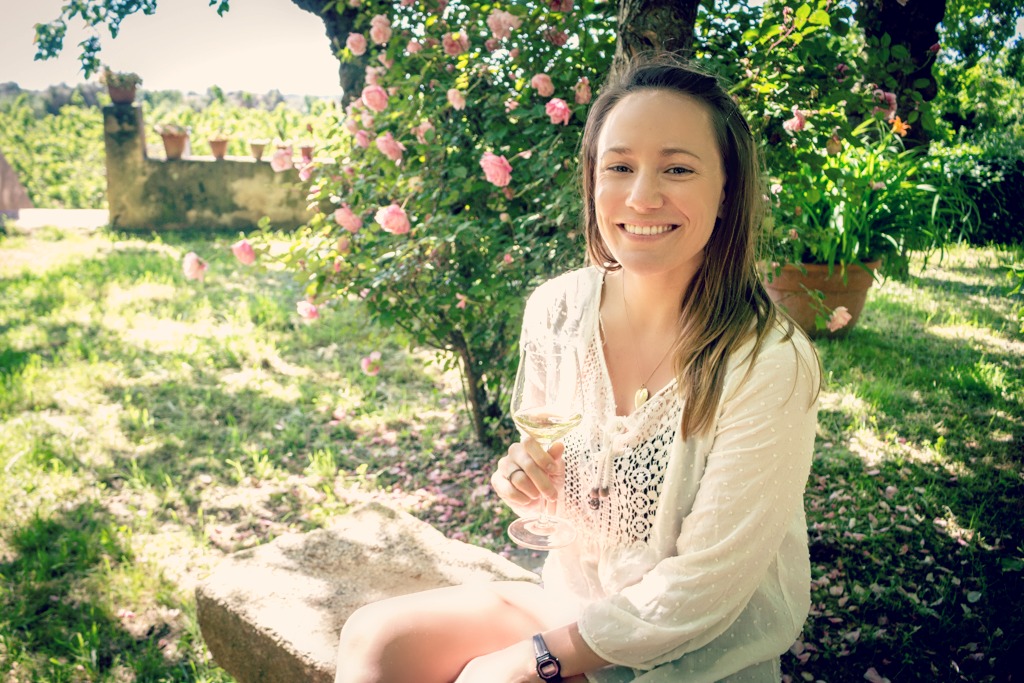At Mas Molla Winery in Calonge, Catalonia, the word you’ll hear time and again is “tradition.” In a winemaking world where techniques are changing and evolving faster than you can say “stainless steel fermentation tank,” it takes a mountain of dedication to the craft and a heck of a lot of backbreaking effort to produce wine in the traditional way, which is precisely what makes Mas Molla so special.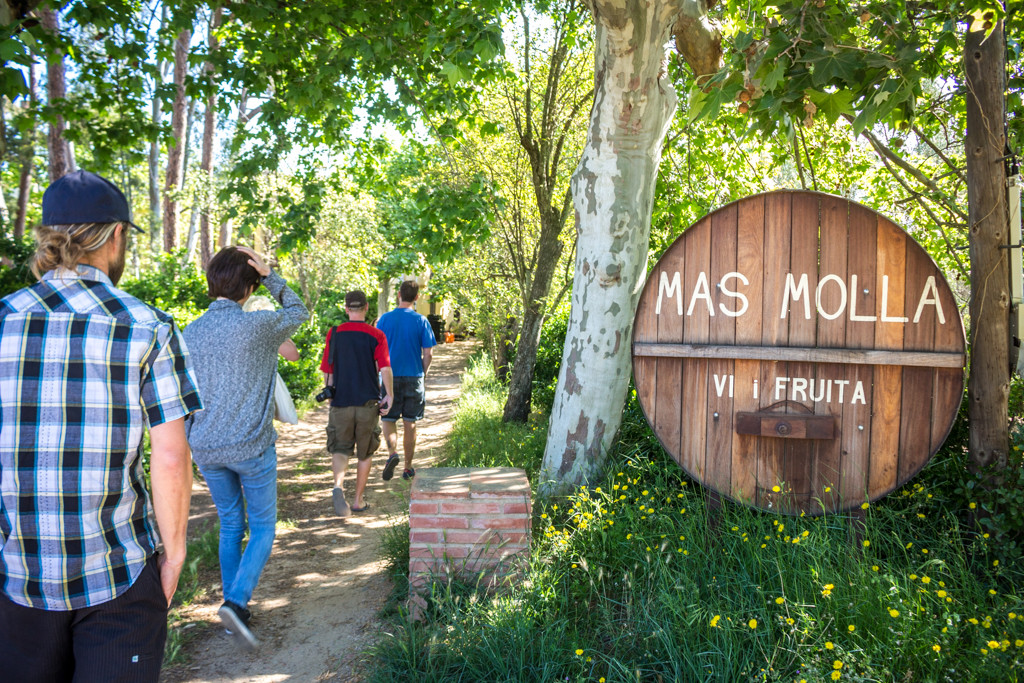
During a visit to Mas Molla Winery, we got to learn the ins and outs of this family’s centuries-old practice (no, really–the winery was established in 1338) and develop a deep respect and admiration for what can only be described as unwavering sticktoitiveness.
The ability to keep on keepin’ on when everyone else in the industry is forging ahead using the newest, most advanced techniques shows true strength of character–obviously this is a family trait.
Our guide for the day was Montse, the eldest daughter of the family. I couldn’t help but feel a pang of jealousy when I learned she was just 29 years old.
The passion this woman exuded and the expertise she clearly had in her field made me acutely aware of the fact that I’m still not an expert in, well, anything (unless you count my expertise in enjoying wine–I’ve got that skill down pat).
This passion and excitement spilled right over to us, though, as we hung on her every word throughout the day.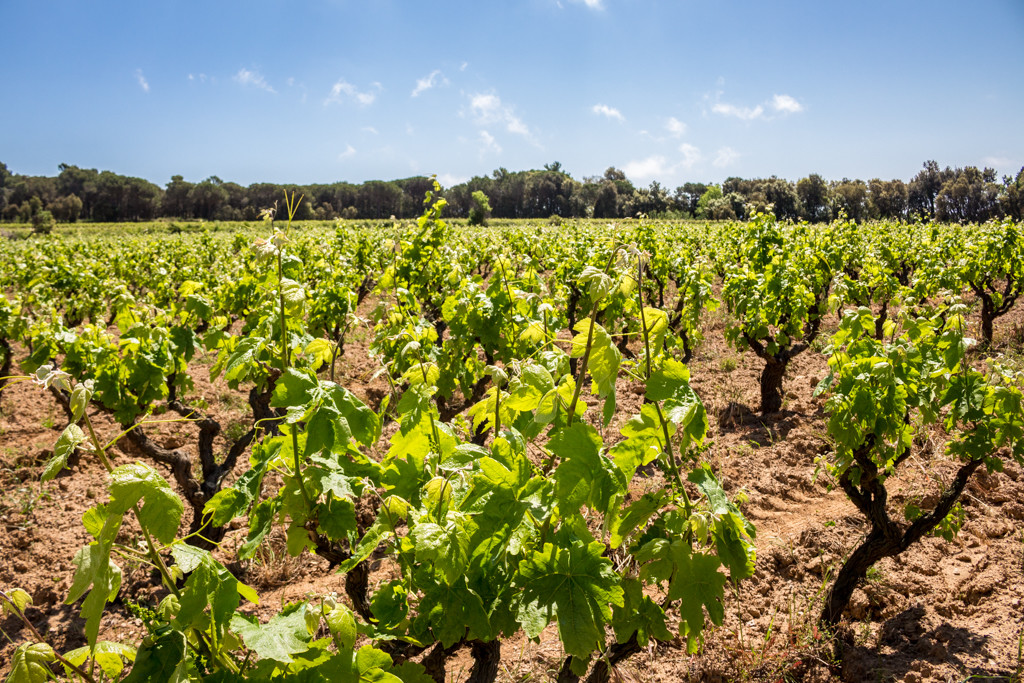
So, what exactly does Mas Molla’s winemaking process entail? Well, for starters, Montse and her sisters cut the grapes by hand; there are no fancy machines to do this work for them.
This method of harvesting is gentler on the grapes and allows them to carefully control the quality.
The crushing of the grapes is the one part of Mas Molla’s process that is not traditional, meaning they use a crusher rather than stomping the grapes with their feet.
To separate the liquid from the skins, however, the traditional hand-powered basket press is used.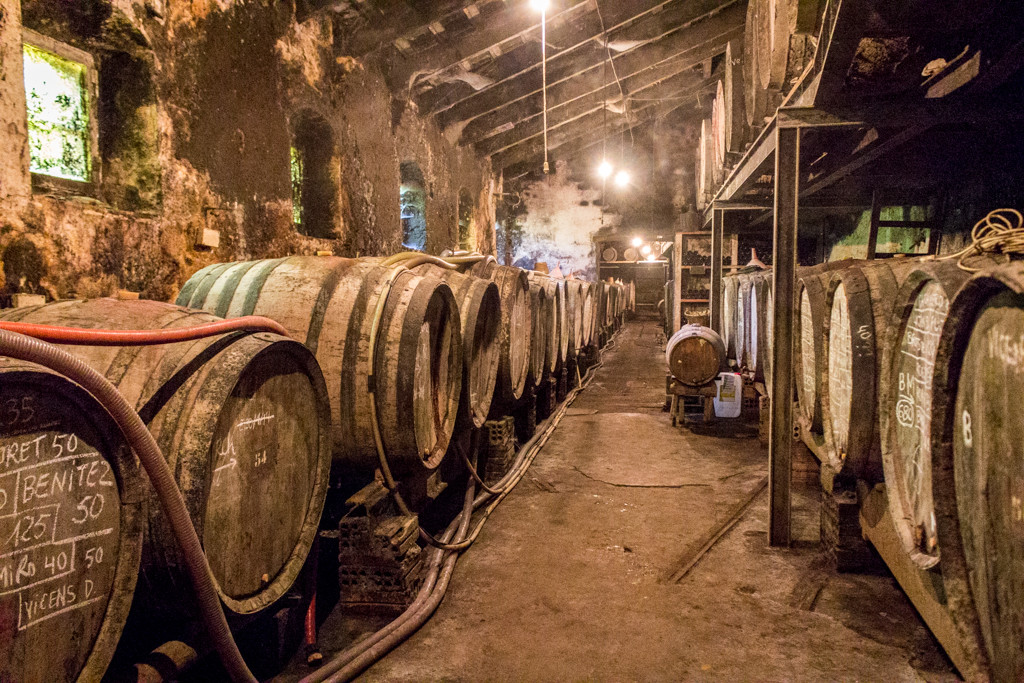
The wine is then transferred to large oak barrels, some of them nearly 100 years old, where it is allowed to ferment naturally.
That is to say, rather than yeast and sugar being added, enzymes within the grapes themselves break down the cellular matter to create ethanol. Because the fermentation process is not tightly regulated, this means that the same wine is never produced twice.
As Montse explained, “Every year it’s a surprise!”
Mas Molla’s wines are as natural as they come: Organically grown, unfiltered, with no sulfites, sugars, yeasts or other additives.
Known as “live wines,” they will continue to change in flavor and composition long after they’ve been bottled, which means two bottles from the same barrel can taste drastically different depending on when they are opened.
This also means proper storage and transportation of these wines are of utmost importance, as conditions like temperature, exposure to light, and movement can have undesirable effects on the taste.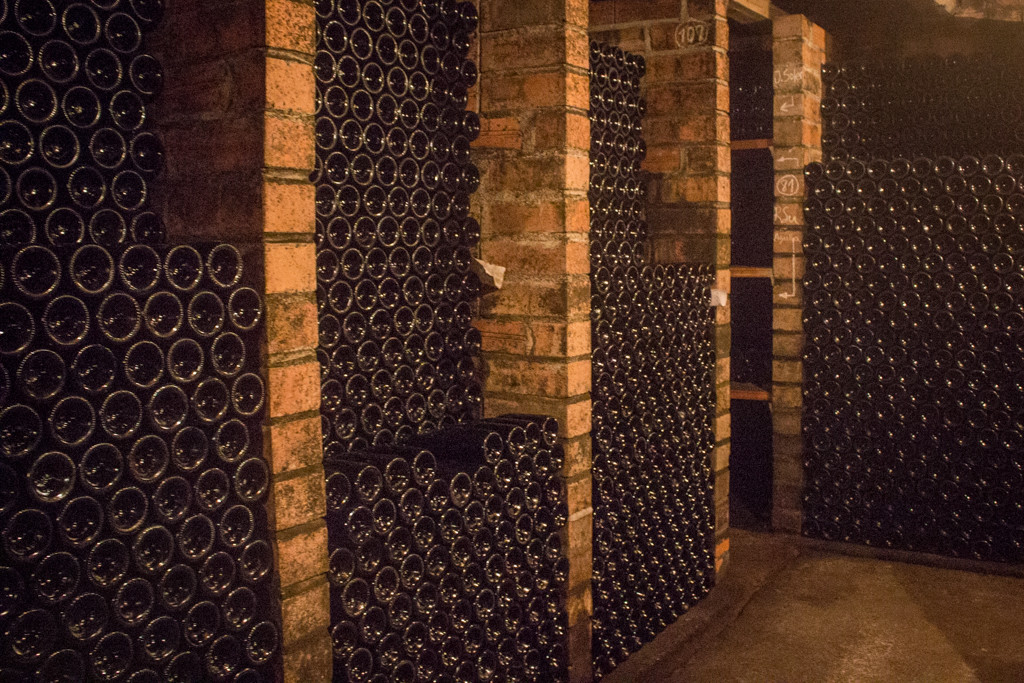
Perhaps the most interesting tidbit we learned was that the process above can sometimes lead to excess carbon dioxide production, leading to a sparkling wine as the end product.
Because they can’t know which of their wines will develop in this way, they have been forced to switch from corks to metal screw caps so that none of these sparkling, pressurized surprises fly off the shelf unexpectedly.
As for distribution, wines are only sold directly from the winery. Clients of Mas Molla choose their wines in part for the quality of the product and in part because they enjoy the flavor variations this traditional method produces from year to year.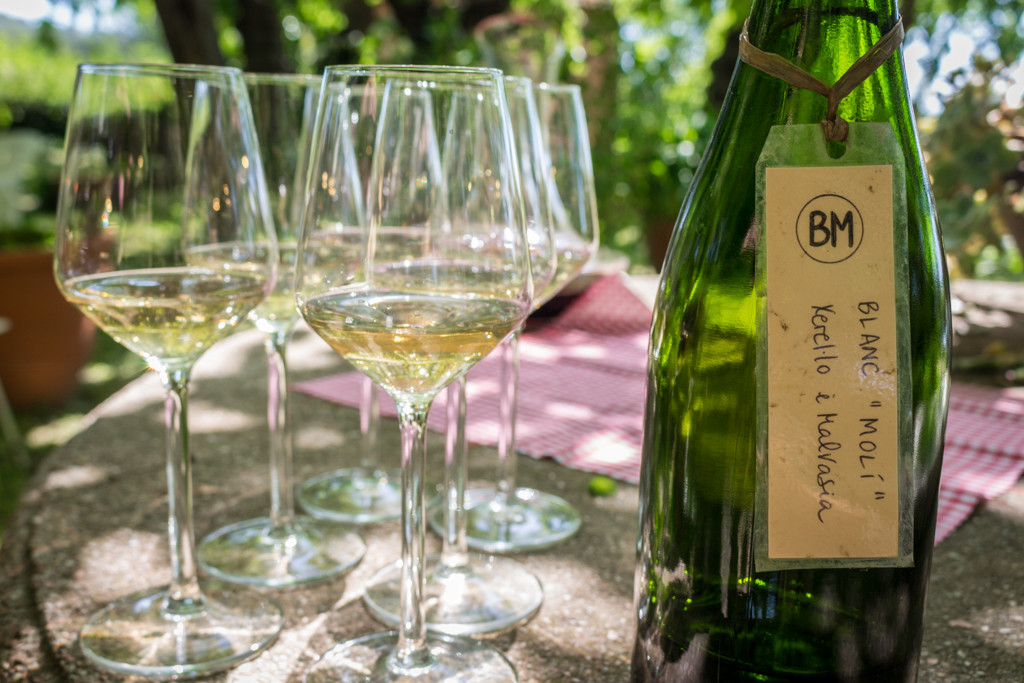
Bottles are never labeled which helps to keep production costs down and allows the bottles to be reused. The winery’s loyal clients typically buy bottles in bulk and receive a small refund when they are returned.
And the best part?
Mas Molla understands that drinking wine is a deeply ingrained part of Spanish culture and, therefore, want it to remain accessible to everyone.
For this reason, the most expensive bottle they sell costs no more than €7 (the oldest wine they have, one Euro for every year that it has been aged) with the majority selling for just €2 or €3.
Needless to say, I was completely enamored with this sweet little winery as well as the two wines we tasted that day.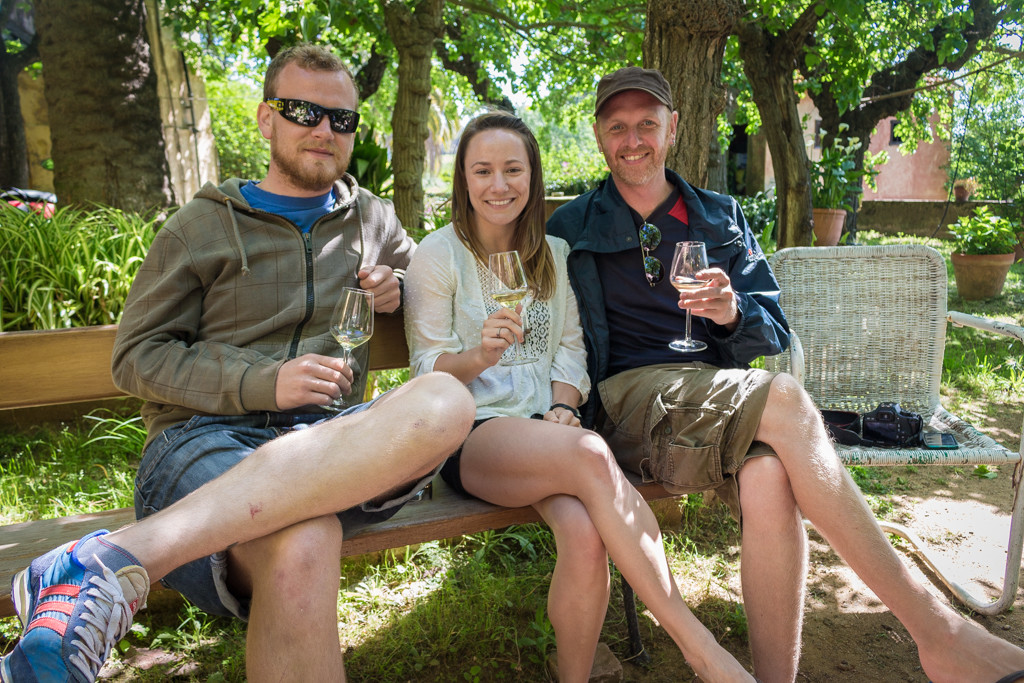
In Catalonia, you won’t find a more unique winery experience than a tour and tasting at Mas Molla, the family-owned winery where tradition is king.
Have you ever been to a traditional winery or sampled a live wine?

